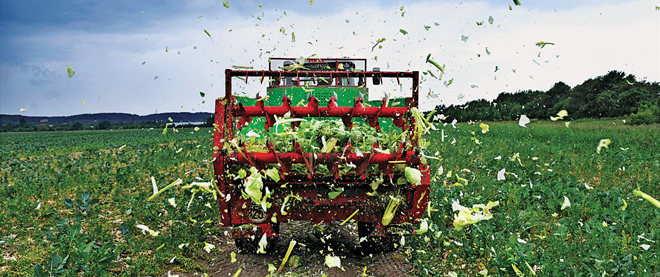Good news, bad news: May 19-26, 2011
Google lets you pay with your cellphone; California mistakenly releases hundreds of violent inmates
Manu Fernandez/AP
Share
Good news

Upper house repair
The Tories plan to overhaul the Senate by introducing a bill later this month that will put term limits on senators—as low as eight or 10 years—and allow provinces to elect members when positions open up. Stephen Harper and the Conservatives have long talked about Senate reform, but their actions lately have been anything but democratic. Harper recently appointed to the Senate three Tory candidates who had failed to get elected to the House of Commons in the May election. Real Senate reform means more democracy, less hypocrisy.
The fast lane
The Canadian economic recovery is alive and well. The economy grew at an annualized rate of 3.9 per cent in the first quarter—double the rate in the U.S. The manufacturing sector also received a vote of confidence as Chrysler paid back $1.7 billion in loans to Ottawa, and Fiat’s CEO, Sergio Marchionne, said this week his company is interested in buying Canada’s remaining shares in Chrysler. The bailout of Chrysler two years ago was widely criticized, but the automaker now appears to be back on the road to being a profitable, job-producing company.
In the name of hockey
In a show of hometown support, the Richmond, B.C.-based Boston Pizza will become “Vancouver Pizza” for the duration of the Stanley Cup playoffs. All restaurants will receive Vancouver Pizza banners to hang over their signage and Vancouver Pizza stickers for takeout containers. The strategy might play well outside B.C., too—a new Sportsnet poll shows 85 per cent of Canadian hockey followers are pulling for the team.
Pop till you drop
America’s knack for innovation keeps on giving. Google unveiled a mobile payment system called Google Wallet that allows shoppers to swipe their cellphones at registers to pay for purchases. Meanwhile, Coca-Cola is rolling out touch-screen vending machines that offer customers a choice between more than 100 different pop flavours. The machines use ink-jet-like syrup mixers and send data about people’s preferences back to Coke headquarters. It’s never been a better time to be a consumer.
Bad news

Losing control
Yemen slipped closer to civil war as a ceasefire between government and opposition forces broke down. Fighting in the capital of Sanaa has led to over 100 deaths since President Ali Abdullah Saleh refused to follow through on a pledge to resign. The government also bombed the city of Zinjibar after it was seized by Islamic militants. Saleh is accused of trying to curry favour with Western allies by exaggerating the militants’ connection to al-Qaeda, but there is little doubt the chaos raises dangerous instability. This is a black eye for the Arab Spring.
No mercy
After nearly nine years locked inside the U.S. military prison at Guantánamo Bay, Cuba, Omar Khadr should be accustomed to dreary news. This week brought even more: his clemency claim has been denied. The Toronto native, who was captured in Afghanistan at the age of 15 and convicted of killing an American soldier, will be transferred to a Canadian penitentiary later this year. The failed clemency bid effectively rubber-stamps the eight-year sentence he received at his recent trial, and eliminates any hope that he could apply for early parole before June 2013.
Mailing it in
The union representing 50,000 Canada Post employees is threatening to strike unless workers can keep banking sick days and get a roughly three per cent raise annually for the next four years. These demands come despite a 17 per cent drop in letter mail—not to mention that employees begin with seven weeks vacation, earn $24 an hour to start, and can retire as early as age 55. The timing of the strike also couldn’t be worse. In B.C., the long overdue HST referendum would have to be delayed because three million mail-in ballots wouldn’t reach voters.
To catch a criminal
California mistakenly released hundreds of violent inmates after being ordered to limit overcrowding in prisons. Over 450 inmates “with a high risk of violence” were let out on unsupervised parole. At least on the other side of the country, police caught a lucky break. In Maine, a man wanted on two warrants accidently “pocket-dialled” 911 while doing yardwork. He was promptly tracked down by officers.